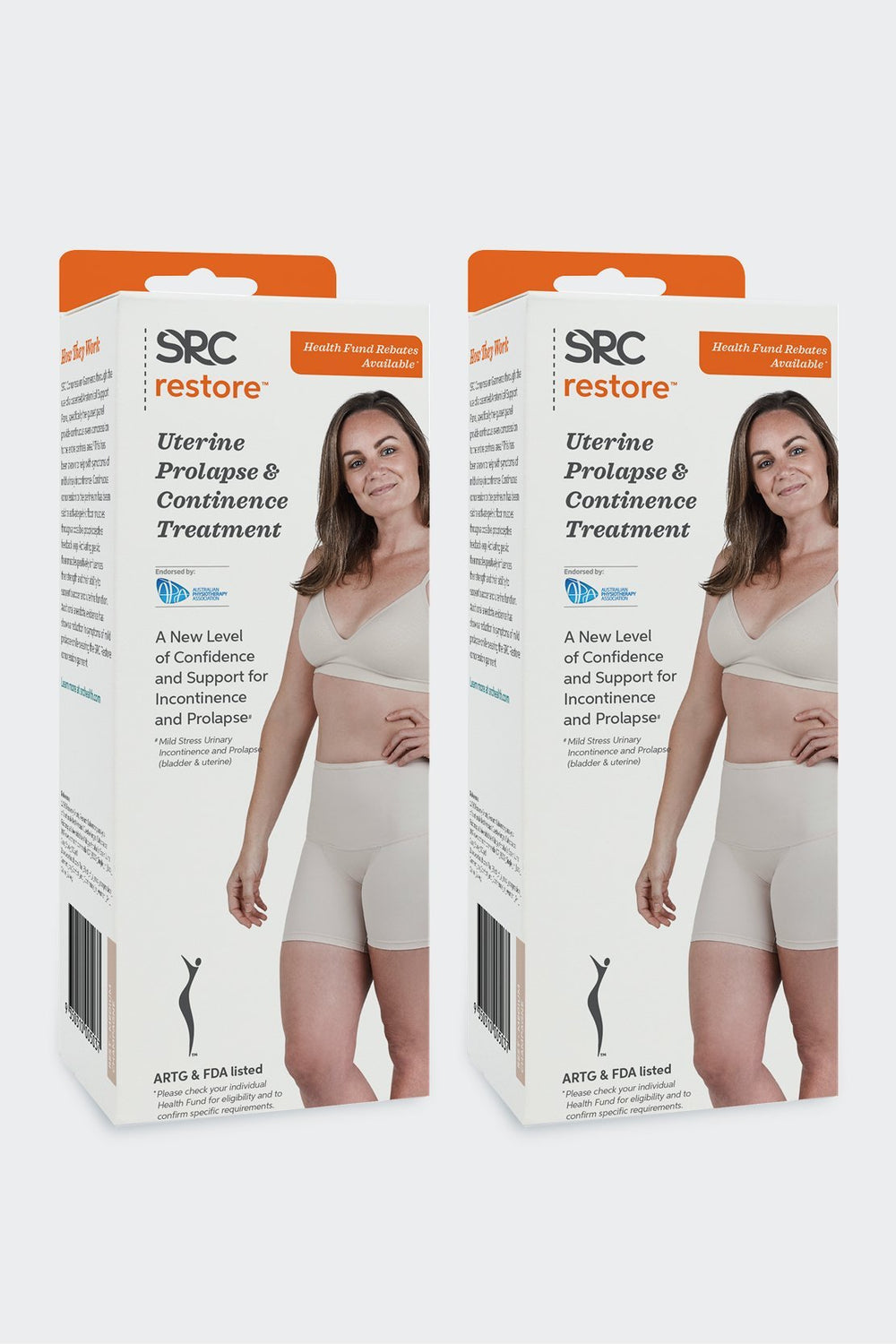Motherhood is beautiful, but the physical, emotional, and mental demands of growing, birthing, and caring for a baby can leave mothers feeling profoundly drained. If you feel persistently exhausted, foggy, and unlike yourself after giving birth, you might be experiencing something more than just sleep deprivation; this could be postnatal depletion.
What Is Postnatal Depletion?
Postnatal depletion, also known as postpartum depletion, is a multifaceted physical and emotional condition that affects mothers not only in the immediate weeks after childbirth but often for months or even years postpartum if left unaddressed. The term was popularised by Dr. Oscar Serrallach, a functional medicine doctor, who describes it as a syndrome of profound nutritional, hormonal, and neurochemical imbalances that accumulate over time due to the immense physiological and psychological demands of motherhood.
This condition goes far beyond the typical tiredness associated with having a new baby. Postnatal depletion reflects a chronic state of exhaustion, nutrient deficiency, and emotional strain resulting from the prolonged demands of pregnancy, birth, breastfeeding, and early parenting, particularly in environments where mothers have inadequate recovery time, support, or recognition of their needs.
Dr. Serrallach notes that the modern medical model often underestimates this experience, focusing instead on acute postpartum complications or mental health diagnoses like postpartum depression. However, many women suffer from postnatal depletion without fitting the criteria for depression, yet still experience symptoms that impact their daily lives and relationships.
As Serrallach explains in his book “The Postnatal Depletion Cure,” the depletion often begins during pregnancy and worsens with birth and breastfeeding. This can also be prolonged by social isolation, lack of sleep, poor nutrition, and the pressure to resume normal life too quickly.
“Postnatal depletion is when a mother has ongoing feelings of fatigue and exhaustion, coupled with a feeling of being ‘wired but tired.’ There is also a sense of being overwhelmed and often feeling a loss of self and purpose.”
— Dr. Oscar Serrallach, The Postnatal Depletion Cure (2018)
In short, postnatal depletion is a real and measurable condition that deserves awareness, validation, and comprehensive support, just as much as any other postpartum health concern.
Common Symptoms of Postnatal Depletion
Postnatal depletion can manifest in a variety of ways. Common symptoms include:
Physical Symptoms
-
Persistent fatigue, even after resting
-
Hair loss or brittle nails
-
Dry skin
-
Poor immune function
-
Muscle aches or joint pain
-
Sleep disturbances
Emotional Symptoms
-
Feelings of overwhelm or irritability
-
Anxiety or mood swings
-
A sense of losing your identity or joy
-
Cognitive Symptoms
-
“Mummy brain” – forgetfulness and poor concentration
-
Mental fog
-
Difficulty making decisions
What Causes Postnatal Depletion After Birth?
Several factors can contribute to postpartum depletion, including:
-
Nutritional deficits due to pregnancy, blood loss during delivery, and breastfeeding
-
Sleep deprivation from nighttime wakings and round-the-clock caregiving
-
Hormonal shifts affecting mood, energy, and cognitive function
-
Lack of support from partners, family, or community
-
Physical trauma from delivery or C-section
-
Societal pressure to “bounce back” quickly and resume responsibilities
How Long Can Postnatal Depletion Last?
Unlike the baby blues, which are usually a short-lived emotional dip, experienced by up to 80% of new mothers and typically resolve within two to three weeks postpartum, postnatal depletion can be much more prolonged and turn into a chronic condition.
If left unrecognised or untreated, postpartum depletion may persist for months or even years. According to Dr. Oscar Serrallach, some mothers report lingering symptoms of fatigue, brain fog, low mood, and physical exhaustion for up to seven years after giving birth. He emphasises that these women are not unwell in the conventional medical sense but are operating with depleted physical and emotional reserves that have never been replenished since becoming mothers.
“I’ve seen mothers come in for help with postnatal depletion seven years after the birth of their last child. They’re still suffering, still exhausted, and often still blaming themselves.”
— Dr. Oscar Serrallach, The Postnatal Depletion Cure (2018)
The duration and severity of postnatal depletion can vary widely and are influenced by multiple factors, including:
-
Nutritional status before, during, and after pregnancy
-
Sleep quality and quantity (especially during the first year)
-
Support systems, including family, partner, and community
-
Number of children and time between pregnancies
-
Workload and expectations, both at home and professionally
-
Cultural pressures to ”bounce back” or return to normal life quickly
In today’s fast-paced society, many mothers feel pressure to resume full responsibilities without adequate time for healing and replenishment. This lack of structured postpartum care, combined with chronic sleep deprivation and emotional strain, can lead to years of functioning in survival mode.
It’s essential to recognise that postnatal recovery is not linear, and mothers should be supported beyond the typical six-week checkup. Long-term recovery involves gradual replenishment of physical nutrients, emotional energy, and mental clarity, none of which can be rushed.
How to Recover From Postnatal Depletion Safely and Naturally?
Although caring for your baby is essential, you also have to take care of yourself. Remember, you cannot pour from an empty cup. Taking care of yourself after giving birth is crucial for your and your baby's well-being.
1. Get Enough of the Right Nutrients
Pregnancy and breastfeeding can deplete your stores of key nutrients like iron, zinc, iodine, omega-3s, and B vitamins. Support your recovery with:
-
Whole foods: leafy greens, nuts, seeds, eggs, fatty fish, and legumes
-
Bone broth and warm, nourishing meals
-
Targeted supplements (consult your doctor or dietitian)
2. Prioritise Rest and Sleep
While uninterrupted sleep may be unrealistic, try:
-
Sleeping when the baby sleeps
-
Taking short naps throughout the day
-
Splitting night shifts with a partner or support person
-
Lowering your expectations and accepting help
3. Move Your Body Gently
Light movement can reduce fatigue and improve mood. Safe postpartum exercises include:
-
Walking
-
Postnatal yoga or Pilates
-
Gentle core and pelvic floor strengthening (as advised by a Women’s Health Physiotherapist)
4. Practice Emotional Self-Care
-
Talk to someone about your feelings
-
Limit time on social media
-
Spend time outdoors or in nature
-
Reconnect with activities that bring joy
5. Build a Support Network
You’re not meant to do this alone. Lean on friends, family, online communities, and healthcare providers. Whether it's asking a loved one to watch the baby while you nap, joining a mothers’ group to share experiences, or speaking to a postnatal specialist about how you’re feeling, every bit of support matters. Surrounding yourself with people who understand, encourage, and uplift you can ease the emotional load and help you feel less isolated. Remember, accepting help isn’t a sign of weakness; it’s an important step toward healing.
Postnatal Depletion vs. Postpartum Depression
Understanding the difference between postnatal depletion and postpartum depression (PPD) is crucial for getting the right support.
Postpartum Depression is a clinical condition characterised by:
-
Persistent sadness or hopelessness
-
Loss of interest in life
-
Feelings of worthlessness or guilt
-
Thoughts of self-harm or harm to the baby
While postpartum depletion primarily presents as physical and cognitive exhaustion, postpartum depression involves more intense emotional disturbances. Both can co-exist, and a proper diagnosis is essential.
Duration and Intensity:
-
Postnatal depletion is ongoing fatigue that can last years without support
-
Postpartum depression is typically more acute and may require medical intervention
If you’re unsure which you’re experiencing, speak to a healthcare professional.
When to Seek Professional Help
Postnatal depletion can sometimes evolve into clinical depression or anxiety. Seek help if you experience:
-
Persistent low mood
-
Anxiety or panic attacks
-
Inability to bond with your baby
-
Suicidal thoughts or urges
These are not just signs of "being tired.” They are signals that your mind and body need professional care. Reach out to your GP, a mental health professional, or your maternal health nurse. You deserve support just as much as your baby does. Listen to your body, nourish your mind, and don’t hesitate to ask for help.
FAQs
1. What is postnatal drop?
“Postnatal drop” refers to the sudden hormonal crash that occurs after birth, particularly the drop in estrogen and progesterone levels, which can trigger mood swings, fatigue, or baby blues.
2. What is the 5-5-5 rule for postpartum?
The 5-5-5 rule suggests:
-
5 days in bed
-
5 days in bed
-
5 days around the bed
This encourages a slow and supported postpartum recovery.
3. What are the three types of postpartum psychiatric illness?
-
Postpartum Blues – mild and short-lived
-
Postpartum Depression – more severe and lasting
-
Postpartum Psychosis – rare, but a psychiatric emergency requiring immediate attention
4. What is the 40-day rule after birth?
Also known as “la cuarentena” in some cultures, the 40-day rule emphasises rest, warmth, and limited activity for the first 6 weeks postpartum to allow full recovery and bonding with the baby.
5. What not to do during postpartum?
-
Don’t ignore symptoms of exhaustion or mental health issues
-
Don’t resume intense exercise too early
-
Don’t skip meals or nutrients
-
Don’t isolate yourself
-
Don’t try to “do it all”
6. What supplements are good for postpartum depletion?
-
Iron
-
Omega-3 fatty acids (DHA/EPA)
-
Magnesium
-
Vitamin D
-
B-complex vitamins
-
Always consult a healthcare professional before starting any supplements.
7. What is the fastest way to recover after giving birth?
The fastest and safest way is to:
-
Rest often
-
Eat nutrient-rich foods
-
Stay hydrated
-
Accept help
-
Gently move your body
-
Speak to a healthcare provider if something feels off
Your well-being matters. Postnatal depletion is real, and you don’t have to power through it alone. Prioritise self-care, lean on your village, and give yourself permission to recover at your own pace.
References:
- Serrallach, O. (2018). The Postnatal Depletion Cure.
- McLeod, D., Pullon, S., & Cookson, T. (2020). Postnatal care: What do new mothers say? New Zealand Medical Journal, 133(1517), 63–70.
- Australian College of Midwives (2020). Postnatal Care Position Statement.
- Royal College of Psychiatrists (2022). Postnatal Depression and Perinatal Mental Health.
- WHO (World Health Organization). (2022). Postnatal Care for Mothers and Newborns: Highlights from the World Health Organization 2022 Guidelines.














